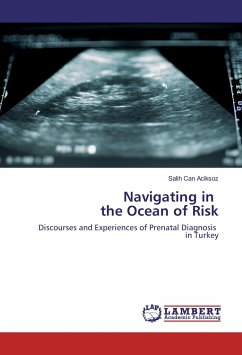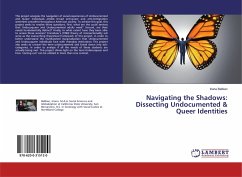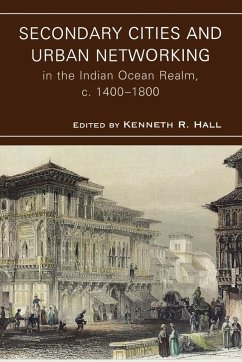
Navigating in the Ocean of Risk
Discourses and Experiences of Prenatal Diagnosis in Turkey
Versandkostenfrei!
Versandfertig in 6-10 Tagen
45,99 €
inkl. MwSt.

PAYBACK Punkte
23 °P sammeln!
Risk is a central imaginary for the organization of social life in late capitalism. Based on a year of ethnographic research in obstetrics clinics and genetics laboratories in Istanbul, Turkey, this work explores the meanings, feelings, and politics of risk in the course of prenatal diagnosis. How does prenatal diagnosis transform the experiences of pregnancy, childbirth, and parenthood? How do secular middle-class Turkish women and their spouses strategically employ, negotiate, subvert, or resist different discourses of risk? How do doctors, pregnant women and their families voice different d...
Risk is a central imaginary for the organization of social life in late capitalism. Based on a year of ethnographic research in obstetrics clinics and genetics laboratories in Istanbul, Turkey, this work explores the meanings, feelings, and politics of risk in the course of prenatal diagnosis. How does prenatal diagnosis transform the experiences of pregnancy, childbirth, and parenthood? How do secular middle-class Turkish women and their spouses strategically employ, negotiate, subvert, or resist different discourses of risk? How do doctors, pregnant women and their families voice different desires, fears, and identity claims as they talk about risk? By answering these questions, this work seeks to contribute to our understanding of the implications of genetic testing for gender, risk society, governmentality, and modernity.












